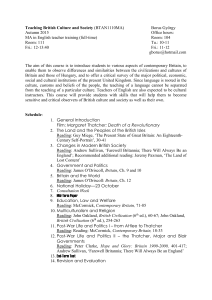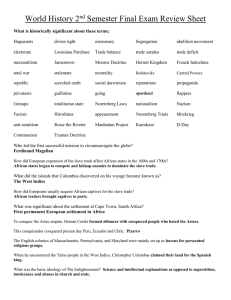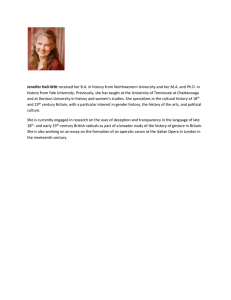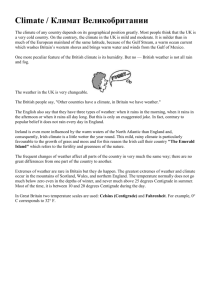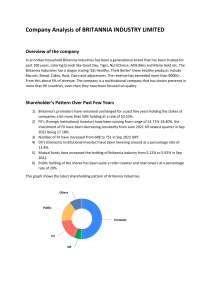Nomenclature and National Identity Britannia Britanni
advertisement
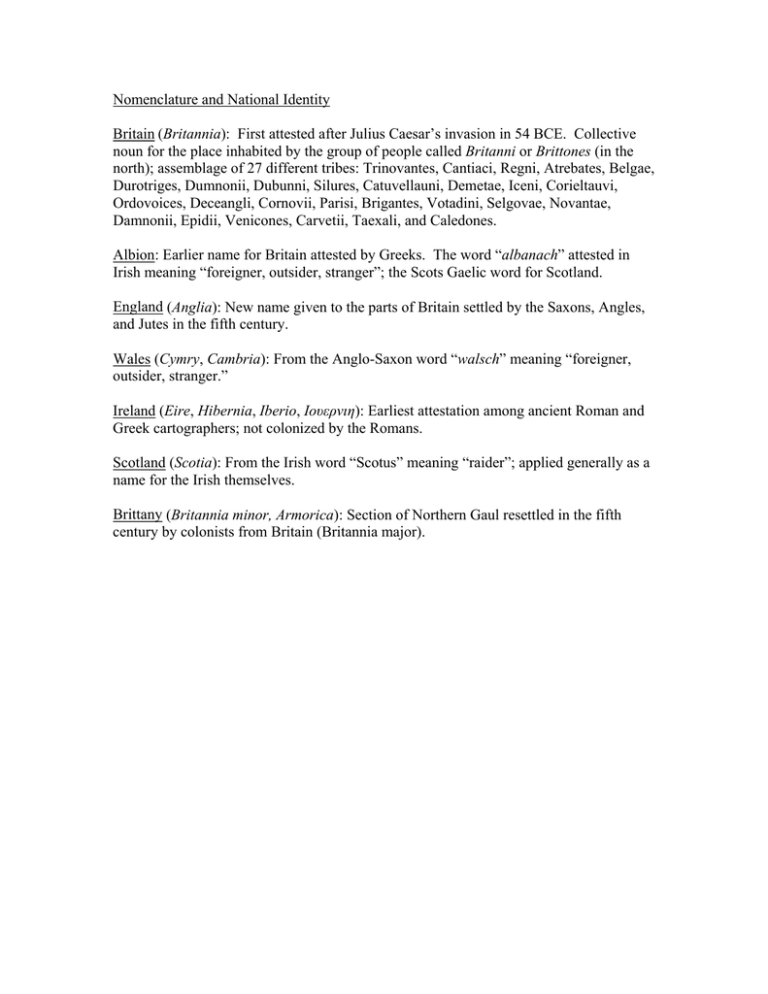
Nomenclature and National Identity Britain (Britannia): First attested after Julius Caesar’s invasion in 54 BCE. Collective noun for the place inhabited by the group of people called Britanni or Brittones (in the north); assemblage of 27 different tribes: Trinovantes, Cantiaci, Regni, Atrebates, Belgae, Durotriges, Dumnonii, Dubunni, Silures, Catuvellauni, Demetae, Iceni, Corieltauvi, Ordovoices, Deceangli, Cornovii, Parisi, Brigantes, Votadini, Selgovae, Novantae, Damnonii, Epidii, Venicones, Carvetii, Taexali, and Caledones. Albion: Earlier name for Britain attested by Greeks. The word “albanach” attested in Irish meaning “foreigner, outsider, stranger”; the Scots Gaelic word for Scotland. England (Anglia): New name given to the parts of Britain settled by the Saxons, Angles, and Jutes in the fifth century. Wales (Cymry, Cambria): From the Anglo-Saxon word “walsch” meaning “foreigner, outsider, stranger.” Ireland (Eire, Hibernia, Iberio, Ιουερνιη): Earliest attestation among ancient Roman and Greek cartographers; not colonized by the Romans. Scotland (Scotia): From the Irish word “Scotus” meaning “raider”; applied generally as a name for the Irish themselves. Brittany (Britannia minor, Armorica): Section of Northern Gaul resettled in the fifth century by colonists from Britain (Britannia major).


